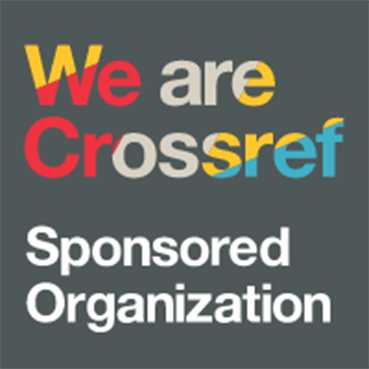Publication Ethic
AHDAF: Journal of Islamic Education is a scholarly journal published by the Department of Islamic Religious Education Tarbiyah and Teacher Training Faculty, IAIN Lhokseumawe, Aceh, Indonesia. This journal is committed to upholding the highest standards of publication ethics and to preventing publication malpractice in any form. It follows the ethical guidelines established by the Committee on Publication Ethics (COPE) and adheres to the principles of integrity, transparency, and academic honesty in scholarly publishing.
AHDAF publishes high-quality empirical and theoretical studies related to Islamic education, including learning strategies, curriculum development, learning evaluation, inclusive education, action research, and other aspects of Islamic education within Southeast Asia. The following statements outline the ethical behavior expected of all parties involved in the publication process—authors, editors, reviewers, and the publisher.
Ethical Guidelines for Journal Publication
The publication of an article in a peer-reviewed journal is a fundamental part of developing a coherent and respected body of knowledge. It reflects the quality of the authors’ work and the institutions that support them. Therefore, it is essential that all parties involved in publishing—authors, editors, reviewers, and publishers—adhere to ethical standards of expected behavior.
Duties of Editors
Publication Decisions
The editor-in-chief of AHDAF: Journal of Islamic Education is responsible for deciding which manuscripts will be published. The decision is based on the validity of the research and its relevance to the journal’s aims and scope. The editor may consult other editors or reviewers in making this decision and will comply with all applicable laws regarding libel, copyright, and plagiarism.
Fair Play
Editors evaluate manuscripts based solely on their academic merit (importance, originality, clarity, and relevance) without regard to the author’s race, gender, religious belief, ethnicity, citizenship, or political ideology.
Confidentiality
Editors and editorial staff must not disclose any information about a submitted manuscript to anyone other than the corresponding author, reviewers, potential reviewers, other editorial advisers, and the publisher, as appropriate.
Disclosure and Conflicts of Interest
Unpublished materials disclosed in a submitted manuscript must not be used in an editor’s own research without the written consent of the author. Editors should recuse themselves from handling manuscripts in which they have conflicts of interest resulting from competitive, collaborative, or other relationships with any of the authors, institutions, or companies connected to the paper.
Duties of Reviewers
Contribution to Editorial Decisions
Peer review assists editors in making editorial decisions and may also help authors improve their manuscripts through constructive feedback.
Promptness
Reviewers who feel unqualified to review a manuscript or who cannot complete the review promptly should notify the editor and withdraw from the review process.
Confidentiality
All manuscripts received for review must be treated as confidential documents. They must not be shown to or discussed with others except as authorized by the editor.
Standards of Objectivity
Reviews should be conducted objectively. Personal criticism of the author is inappropriate. Reviewers should express their opinions clearly with supporting arguments and relevant evidence.
Acknowledgment of Sources
Reviewers should identify relevant published work that has not been cited by the authors. Any statement that an observation, derivation, or argument has been previously reported should be accompanied by the appropriate citation. Reviewers must notify the editor of any substantial similarity or overlap between the manuscript under review and any other published work they are aware of.
Disclosure and Conflict of Interest
Privileged information or ideas obtained through peer review must be kept confidential and not used for personal advantage. Reviewers should not consider manuscripts in which they have conflicts of interest with any of the authors, companies, or institutions involved.
Duties of Authors
Reporting Standards
Authors should present an accurate account of the work performed and provide an objective discussion of its significance. Fraudulent or knowingly inaccurate statements are unethical and unacceptable.
Data Access and Retention
Authors may be asked to provide raw data related to their paper for editorial review and should be prepared to make such data publicly available, if practicable, in accordance with the ALPSP-STM Statement on Data and Databases.
Originality and Plagiarism
Authors must ensure that their work is entirely original and that any use of the work and/or words of others is properly cited or quoted. Plagiarism in all its forms constitutes unethical publishing behavior and is unacceptable.
Multiple, Redundant, or Concurrent Publication
Authors should not submit the same manuscript to more than one journal simultaneously. Submitting the same research to multiple publications constitutes unethical publishing behavior.
Acknowledgment of Sources
Proper acknowledgment of others’ work must always be given. Authors should cite publications that have been influential in shaping their own work.
Authorship of the Paper
Authorship should be limited to those who have made significant contributions to the conception, design, execution, or interpretation of the study. All significant contributors should be listed as co-authors. The corresponding author must ensure that all co-authors have approved the final version of the manuscript and agreed to its submission.
Disclosure and Conflict of Interest
All authors must disclose any financial or other substantial conflicts of interest that might influence the results or interpretation of their manuscript.
Fundamental Errors in Published Works
When an author discovers a significant error or inaccuracy in their published work, they must immediately notify the editor or publisher and cooperate with the editor to retract or correct the paper.
Publisher’s Note:
AHDAF: Journal of Islamic Education takes its duties of guardianship over all stages of publishing extremely seriously. We recognize our ethical and other responsibilities and are committed to ensuring that advertising, reprints, or other commercial revenue has no impact on editorial decisions.


